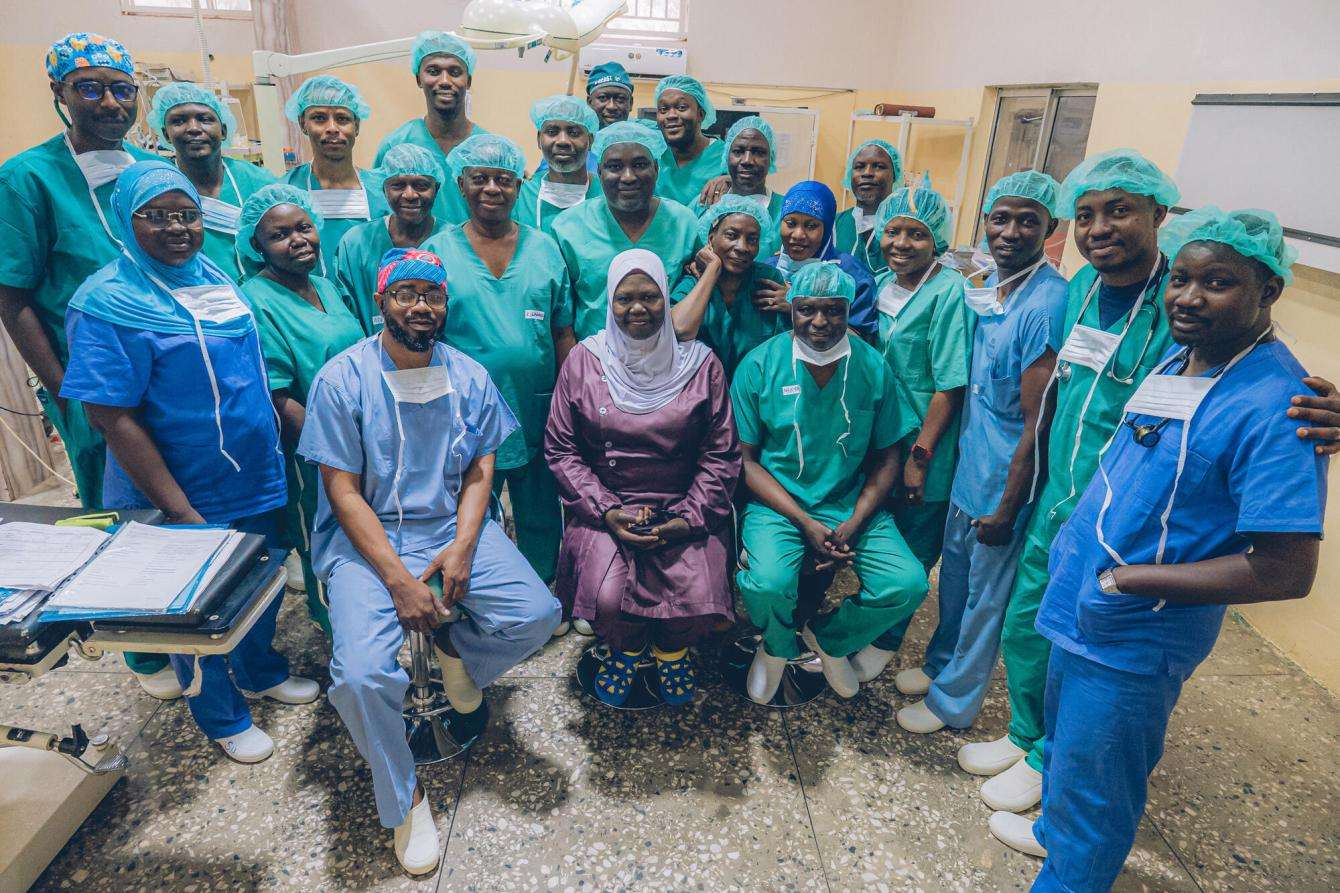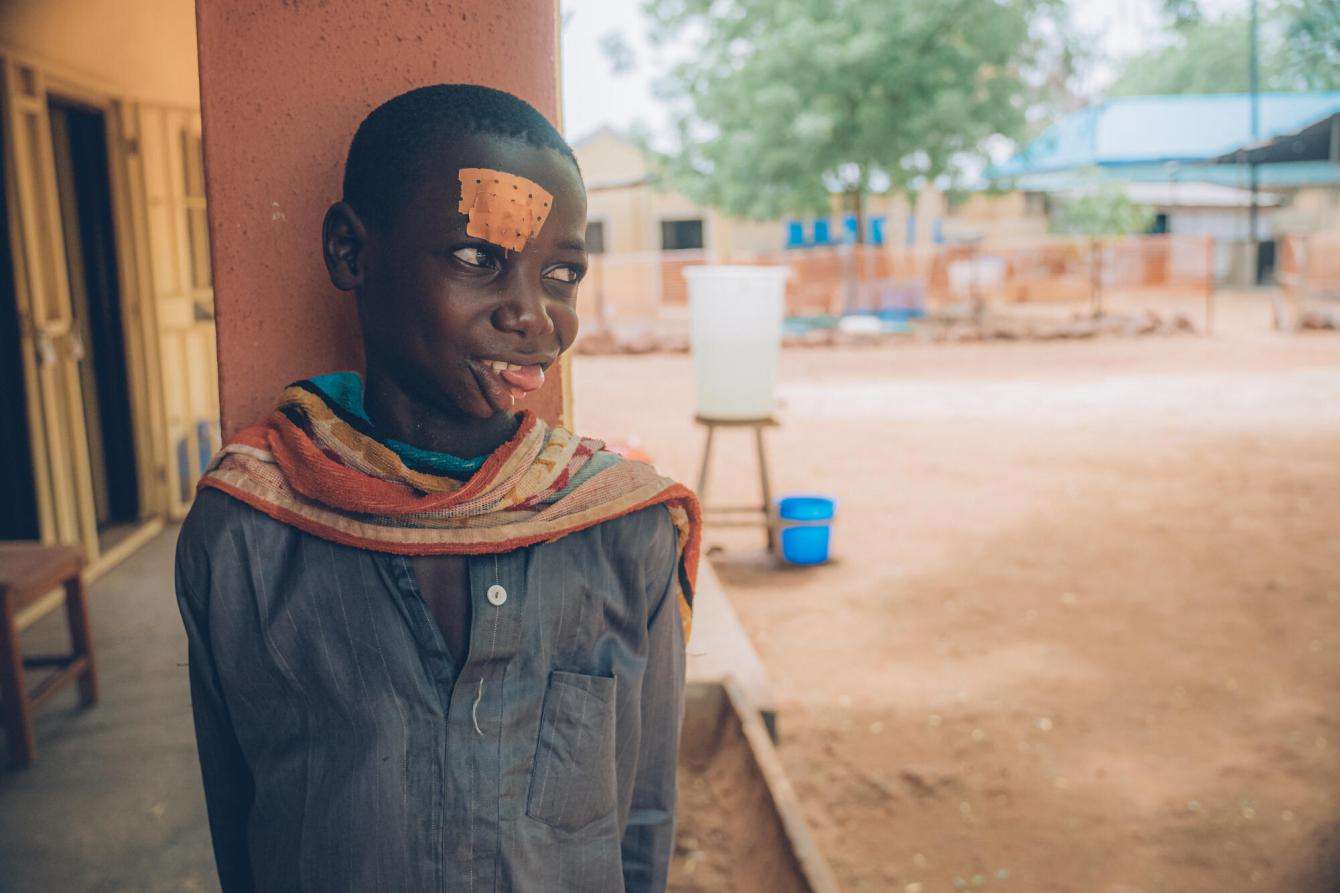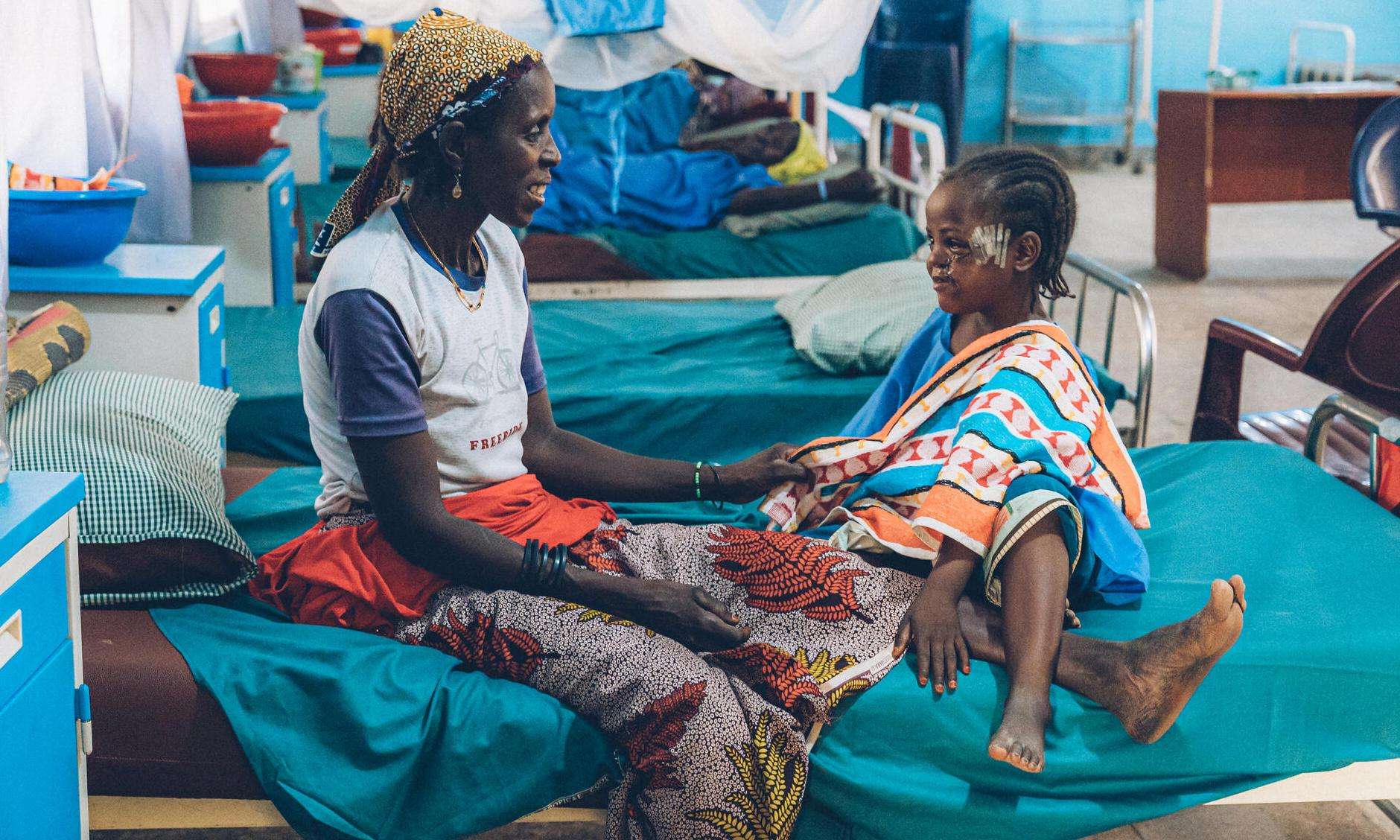NEW YORK/AMSTERDAM, December 15, 2023—After campaigning for years on behalf of patients with noma, Doctors Without Borders/Médecins Sans Frontières (MSF) welcomes today's decision by the World Health Organization (WHO) to list noma as a neglected tropical disease.
Following a meeting in Geneva on October 12, the Strategic and Technical Advisory Group for Neglected Tropical Diseases (STAG-NTD) concluded that noma fits all the criteria for inclusion on the WHO’s official list. The group shared this recommendation with the WHO director-general, who has now ratified it.
“We welcome the WHO director-general’s decision, which confirms what MSF and the medical community have insisted on for years: that noma is a neglected tropical disease and deserves all the attention and resources that this implies,” said Mark Sherlock, MSF health programs manager. “We hope that this decision will shine a spotlight on the disease, facilitating the integration of noma prevention and treatment activities into existing public health programs, and encouraging the allocation of much-needed resources to help tackle the disease.”

What is noma and how are people taking action?
Noma is a completely preventable disease and is easy to treat if addressed in time. Untreated, it destroys the skin and bones of the face in just a few weeks, leading to death for about 90 percent of those infected. The 10 percent who survive face a future of pain, disfigurement, and social stigma. The disease most commonly affects children who are malnourished or whose immune systems are otherwise compromised.
MSF has supported the Nigerian Ministry of Health’s Sokoto Noma Hospital in northwest Nigeria since 2014. There, MSF teams provide reconstructive surgery, nutritional support, mental health support, and outreach activities. Since 2014, MSF’s surgical teams in Sokoto have carried out 1,203 surgeries for 837 patients.
Nigeria was the lead sponsor country for the request to have noma recognized as a neglected tropical disease, which received letters of endorsement from 31 countries. MSF supported Nigeria in providing medical evidence, based on years of research and experience treating survivors, in the hope that greater attention on noma will lead to earlier diagnoses and stronger research.

The path forward for fighting noma
“Inclusion in the WHO’s list of neglected tropical diseases is an important step, but not the final one,” said Sherlock. “We plan to shift towards mobilizing resources and strategic alliances within the global health community to facilitate programming and research to raise awareness of noma, reduce mortality, and improve the patients' and survivors' life conditions.”
MSF plans to focus on research and expanding its collaboration with academic institutes around the world to discover more about the causes of noma. Another key step will be to integrate noma surveillance systems into MSF’s medical work.
“In endemic countries, MSF plans to introduce screening for noma into existing MSF programs, such as malnutrition screening and vaccination campaigns, with the aim of early detection and prompt treatment,” Sherlock said.
Finally, MSF will continue its advocacy efforts for noma. Its three-year campaign has received strong support from survivors of the disease, who have contributed their voices to get across the simple but important message: that noma is a preventable and treatable disease that should no longer exist.




